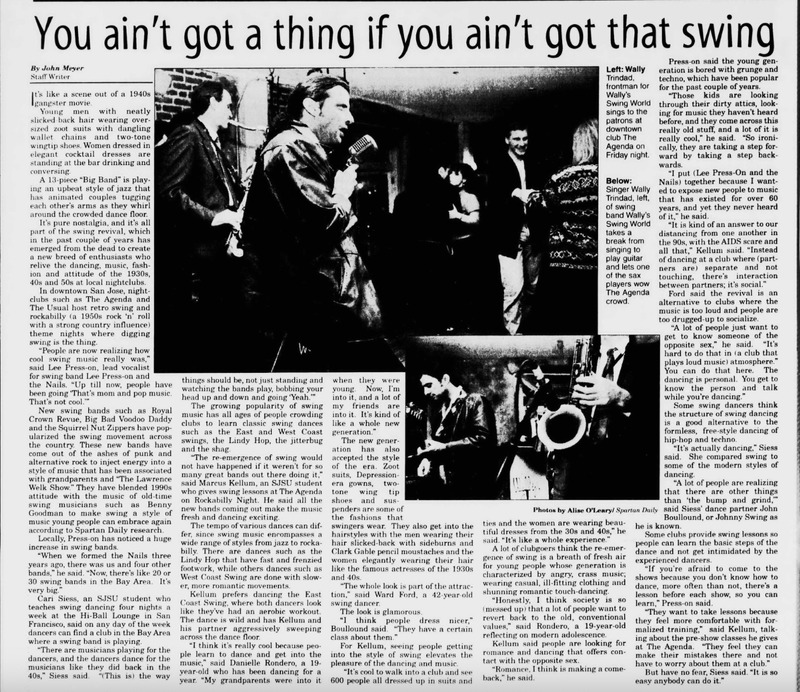Old-fashioned Morals, Expectations, and Purity
This page shows archives and interviews collected from both subjects Violence Against Women and Lindy Hop, showing the intersecting connections towards the topic of 'Old-fashioned Morals, Expectations, and Purity'.
Note: The asterik (*) shown in the description text for certain pieces of media means there is more than one page.
Analysis of 'Old-fashioned Morals, Expectations, and Purity'
Both sets of articles from their respective topics reveal the limitations that are placed upon women’s autonomy in various ways. There are insinuations of the gendered expectations of women following men's leads in regards to Lindy Hop/swing dance, that parallel with the societal expectation of women's roles at the time, such as motherhood. It was in the ‘90’s when women became more upfront with challenging these traditional gendered roles. Swing dance in retrospect poses problems in regards to the awareness of autonomy and consent in the midst of partnered roles that reinforce the idea of men being leaders.
In regards to autonomy, societal pressure often dictated what women could and should do with their bodies, sexuality, and traditional family roles. “Alternatives for Unwed Mothers” highlights the societal pressure placed on women, suggesting that their value and morality were tied to their marital status, especially in the context of pregnancy. Pregnancy outside of marriage was portrayed as a moral failing, which reinforced the idea of a woman’s value being closely tied to the expectation of traditional roles of being a wife or mother. The article giving “alternatives” insinuates that women who didn’t fit the exact mold of being wedded before pregnancy needed to be guided in an alternate route for correction rather than autonomy and support. This type of discourse reveals the overbearing and plaguing emphasis on purity culture upon women. The emphasis of shame created social stigma for women in regards to their choices within the realm of reproduction and sexuality.
Both Lindy Hop/swing dance and violence against women intersect when discussing women’s autonomy and societal expectations through the basis of gendered power dynamics and societal control of women’s bodies. The articles show the social conditioning of how women are expected to go along with the ideals that are not only placed by men, but are in favor of traditional values catered for men.




